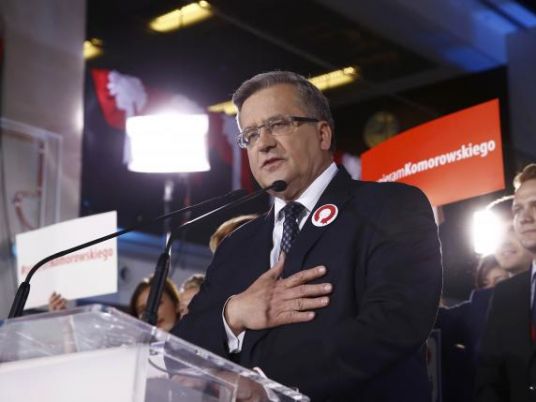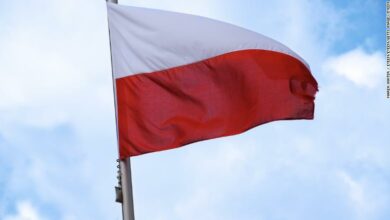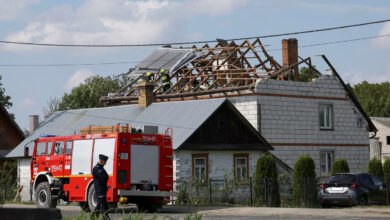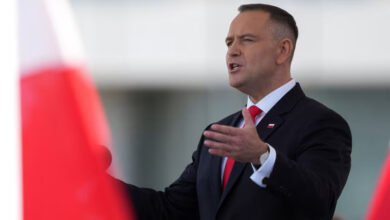
Polish President Bronislaw Komorowski came in a surprise second behind his conservative opponent in the first round of a presidential election on Sunday and must now face him in a run-off, an exit poll showed.
Being forced into another round later this month pointed to voter disenchantment, an alarming prospect for Komorowski's allies in the Polish government who hope to win a record third term in office in a parliamentary election later this year.
The result of Sunday's election should be seen as "a serious warning for the whole broadly defined governing camp," Andrzej Duda, the winning candidate, said late on Sunday.
The exit poll, by Ipsos, put Komorowski on 32.2 percent of the vote, and gave 34.8 percent to Duda, who is running for the conservative Law and Justice opposition party. Opinion polls before Sunday showed the incumbent with a comfortable lead.
Pawel Kukiz, a rock musician, was third on 20.3 percent, the exit poll showed. The outcome of the run-off is likely to hinge on which candidate wins over the most Kukiz voters. He has endorsed allies of Komorowski in past elections.
Komorowski, addressing supporters who gathered in the national stadium in Warsaw to celebrate what they had expected would be a victory, said he would try to re-connect with voters disappointed with their rulers.
"Let's not have any illusions. We face hard work, a hard fight, but I am convinced that we are also facing victory," Komorowski said.
Desire for change
In Poland, eastern Europe's biggest economy, the prime minister has the most powers, but the president wields clout as head of the armed forces, has a say in foreign policy and the power to veto legislation.
The presidential election is a dress rehearsal for the parliamentary vote, when Prime Minister Ewa Kopacz's center-right Civic Platform party will face a strong challenge from Law and Justice.
The government has a strong record on the economy. Poland is the only European Union country to avoid recession after the 2008 financial crash.
Yet it is struggling to counter a sense among voters that they want to see some fresh faces in power. The government also lost its strongest political asset last year when Donald Tusk quit as prime minister to take a senior EU post in Brussels.
Komorowski, 62, campaigned on a platform that he is a safe pair of hands on national security. That message appealed to voters worried that after Russia's intervention in Ukraine, Poland could become the next target.
Duda, 42, campaigned on a promise to lower the retirement age and has warned that if Poland adopts the euro currency, which Komorowski has said he wants eventually to happen, the prices of goods in shops will go up.
The first official results are not expected before late Monday. If those results show no candidate won more than 50 percent, the two with the biggest share of the vote will compete in a second round on May 24.




